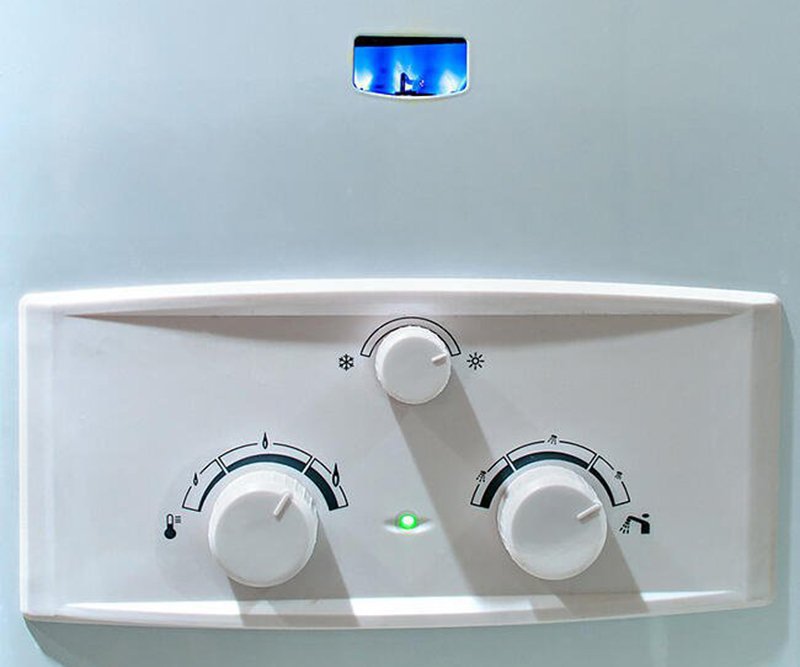Butane gas heaters differ slightly from propane or natural gas heaters. Gas heaters are the most prone to problems (and we will discuss these briefly in this article), but today’s article will focus mainly on butane gas heater problems.
The Most Common Problems with Butane Gas Heaters
Most butane gas heater problems are with the accessories and not due to the heater itself.
The regulator is not suitable for butane
The gas is stored in tanks via a liquefying process, and only when it exits the tank does it return to its original, gaseous state. Each kind of gas will liquefy at a certain pressure point, but the gas cylinder valve cannot be opened fully as this will result in the gas coming out too forcefully. This is where a gas regulator comes in: a regulator ensures that the gas leaves the tank at the correct pressure for the appliance, which, in our case, is a butane gas heater. The gas regulator will reduce the gas outlet pressure and keep it at a safe level.
Gas regulators can sometimes fail, which is a common problem for any gas heater, whether it is a butane, propane or natural gas heater. However, it can sometimes also happen that the gas regulator does not operate at the correct pressure for your heater’s gas type. There are regulators that are suitable for both butane and propane, but some only work with one type of gas.

To find out if your heater has the correct kind of regulator for butane, it’s best to consult with a qualified technician. Signs that the regulator you’re using is not the right type include:
- The heater burner flame is yellow in color.
- The flame burns too much or too little.
- The burner flame is weak or is easily extinguished.
- No gas is reaching the heater, even when the butane cylinder is full.
- A gas odor (mercaptan) due to a leak, which is dangerous and can lead to an explosion or a fire.
In such cases, the solution is to install the correct type of regulator for butane. Butane gas regulators operate at 28 to 30 mbar (while propane regulators operate at 37 mbar). Once you have installed a butane regulator, the problem should be solved.
Nozzles, jets or injectors that are not suitable for butane
Nozzles (also known as jets or injectors) are responsible for the flow of fuel in the gas water heater’s burner so that it can produce and sustain a flame. The diameter of the nozzle will vary according to the kind of fuel used by the gas heater. This means that a propane heater can be adapted to use butane and vice versa, simply by changing the nozzle.

However, if the heater’s nozzle diameter is not suitable for butane, this can result in problems such as the flame not burning properly, the flame constantly going out or an unstable flame.
It is therefore important to check what type of gas you can use with your gas water heater before purchasing it so that you use the correct kind.
Nozzles for butane gas heaters are not too expensive and are readily available, but it is important to have them installed by a technician.

Butane does not flow at sub-zero temperatures
If you live in an area where there is frost or the temperature often drops below freezing, you may experience problems with your butane gas water heater. It is untrue that butane freezes inside the tank, causing it to be stuck inside, while propane doesn’t freeze at all. Neither of these gases actually freeze at these temperatures.
In reality, the temperature and pressure at which butane is stored causes it to change when the exterior temperature falls to zero or less, and this results in it being unable to flow out. This, however, does not happen with propane, which is able to withstand much lower temperatures than butane and can still continue to flow out of the tank.
You can read more about this subject in our article “Propane or Butane: Which LPG is best for your heating needs?”. If you are experiencing this problem, you can change your heater from butane to propane by using the correct injectors.
Gas heaters: the most common problems
It is a well-known fact that each kind of gas heater has its own, unique problems. However, gas heaters have problems that are common to all heaters.
- Not starting or shuts down after switching on: This normally happens in flow heaters when the water pressure is not at the correct level. Another reason could be a hardened or punctured ignition membrane.
- Yellow or orange-colored flame: This kind of problem is due to poor gas combustion, meaning that there is a disproportionate combination of gas and air in the burner. It can be fixed by regulating the combustion, which should only be carried out by a qualified technician with the correct tools.
- Malfunctioning coil: Any component that comes into contact with hot water can be damaged and a coil is no exception. A good gas water heater technician would be able to repair or replace this part.

